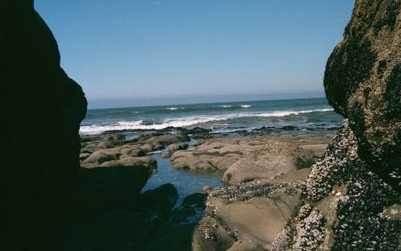JERUSALEM NEWS
NEWS AND INFORMATION
Events, happenings, and Opinions Concerning
Israel, Israelites, Judah, and Everyone Else
Jerusalem News-837
Jerusalem News-837
22 Tevet 5769, 20 January 2009
Contents:
1. "Israel's
Actions in Gaza" - Prof. Asher
Susser
2. Home of Hamas
Murderer from East Jerusalem to be Sealed Up
3. The Bible and the War in Gaza
4. Gas well struck opposite Haifa coast Israel's biggest energy find
5. Jewish Settler Shot by Drive-By Arab Murderer
1. "Israel's Actions in Gaza" - Prof.
Asher Susser
From: dayancenter <dayancen@POST.TAU.AC.IL>
Sender: The Moshe Dayan Center for Middle Eastern and African Studies
Israel's actions in Gaza are designed to deal with more than the present
challenge presented by Hamas, there are long term existential issues at stake.
If Israel is to deter its neighbours from becoming involved in wars in the
future, it must set back the strategic penetration of Iran and its radical axis.
Appearances can be misleading. The war in Gaza might seem to be solely about the
rockets being fired by Hamas into Israel, but that is only part of the picture.
For Israel there are long term existential issues at stake.
The Middle East region has undergone dramatic change in the last twenty years or
so. The Sunni Arab core of countries, led by Egypt, has contracted and declined
in regional influence. This trend was exacerbated by the crushing of Iraq by the
US and its allies. The removal of Iraq as the "gatekeeper" of the Arab East (mashriq)
has exposed the region to increasing Iranian strategic penetration, the likes of
which we have never experienced in the modern era.
Iranian hegemonic design and regional penetration has changed the face of the
Middle East. Iran, hitherto part of the so-called regional periphery, is now
very much part of the centre. As the states of the Sunni Arab core have weakened
the role of non-state actors, from Al-Qa'ida to Hezbollah and Hamas, has
increased. Exploiting the new circumstances, Iran has become more than a Persian
Gulf power; it now also possesses strategic outposts on the eastern shores of
the Mediterranean: one in Lebanon in the form of Hezbollah and the other in the
form of Hamas and Islamic Jihad in Gaza.
Israel's war in Lebanon in 2006 against Hezbollah was the first indirect
regional encounter between two relatively new hegemonic powers of the region,
Iran and Israel. The war in Gaza is another. Israel cannot accept the rocketry
of Iran's surrogates, which sends hundreds of thousands of its citizens
scurrying for the shelters at any time of their choosing, as a way of life. All
Israel's neighbours must be deterred from following Gaza's example by the
recognition that the price to be paid for such provocation will be unbearable.
If Israel demonstrates a lack of resolve and an unwillingness to fight it will
prove itself to be incapable of delivering such a message to the neighbourhood
and its long term survival will be in serious doubt.
When long term survivability in a very tough and cynical neighbourhood is
hanging in the balance, what exactly is a proportionate response? The discussion
of proportionality should therefore consider Israel's overall perception of
threat and whether the action taken is proportional to the threat in question.
Israel is not only fighting the present Hamas challenge but it seeks to prevent,
by deterrence, future wars that might inflict an eventually insufferable loss of
life on Israel.
When Israel elected not to retaliate to the rocket attacks from Gaza it was
understood by Hamas not as an act of restraint, but of weakness and lack of
resolve. This produced the Hamas miscalculation of the Israeli response and the
trigger for all out war, as was the case with Hezbollah in the summer of 2006.
Israel' resort to force in 2006 was well executed in the air but poorly executed
on the ground by a less than mediocre political-military leadership. Even so, it
produced at least part of the desired result, the deterrence of Hezbollah and
two and a half years of quiet on the Israeli-Lebanese border. So far Hezbollah
has been very careful to stay out of the present war, and it remains to be seen
if this abstinence will last. If it does, this too will be an added achievement
of the so-called disproportionate Israeli response in 2006.
In the present campaign it is crucial for Israel, as well as for the states of
the Sunni Arab core, that the strategic penetration of Iran and its radical axis
is set back. Hamas must be cut down to size to the extent that it will accept a
stable and durable cease fire. A verifiable system of control over the Egyptian-Gazan
border is also needed to prevent the rearmament of Hamas. Israel will do its
utmost to secure these objectives and will seek to persevere until it assesses
that these objectives are indeed within reach.
Online at
http://www.rusi.org/research/studies/
menap/commentary/ref:C496C7AEB68B4A/
2. Home of
Hamas
Murderer from East Jerusalem to be Sealed Up
Merkaz Murderer's Home Sealed with Concrete
http://www.israelnationalnews.com/News/News.aspx/129493
by Hana Levi Julian
Extracts:
(IsraelNN.com) The eastern Jerusalem home of Ala'a Abu Dheim, the Arab terrorist
who murdered eight young yeshiva students in March 2008, was sealed Monday
morning by government authorities.
Abu Dheim slaughtered the boys and wounded dozens of others in a lethal terror
attack on the Merkaz HaRav Kook Yeshiva in Jerusalem. The murderer was finally
stopped when an off-duty IDF officer arrived on the scene, shot and killed him.
A large force of Israel police officers supervised workers as they filled two of
the four floors of the house with cement. Police spokesman Micky Rosenfeld told
Israel National News that Border police officers and "special patrol units" were
deployed in the neighborhood. Timing of the operation was kept secret to prevent
provocations.
After the terrorist attack at the yeshiva and his subsequent death, Abu Dheim's
home was the scene of a major demonstration of support for the Hamas and
Hizbullah terrorist organizations. A mourner's tent, decorated with flags from
both terrorist organizations, was set up in front of his house, making it clear
that the family supported Abu Dheim's terrorist actions.
Israeli officials did not force the family to remove the tent even though
authorities in Amman blocked the extended family there from putting up a similar
structure.
3. The Bible and the War in Gaza
http://www.israelnationalnews.com/News/News.aspx/129487
by Tzvi Ben Gedalyahu
Extracts:
(IsraelNN.com) Tzfat Chief Rabbi Shmuel Eliyahu told Ashdod
students last week that Hamas is like the ancient Amalek, which attacked the
children of Israel right after the Exodus from Egypt, and then wrote in a weekly
Torah leaflet that they are like the Philistines in the time of Samson (Shimshon).
Whether one or the other, or both, the rabbi called on the government not to
surrender to modern moral values "at the expense of Jewish lives."
Rabbi Eliyahu also wrote in a weekly Torah bulletin this past Sabbath that the
rulers of Gaza today are the same Philistines from the same Gaza area and with
the same lack of morals as they displayed in the days of Samson.
"Learn from history," he wrote. Then, like today, they had no moral problem to
burn the Philistine wife of Samson with her father's family.
"Then, like today, the Israeli 'elite' did not exactly tolerate Samson, who was
not a member of the 'clique' and who burned Philistine fields.
"The story of his last days is similar to today's events," according to Rabbi
Eliyahu. "He stands at the base of the columns in the presence of thousands of
Philistines who laugh" at his being apparently powerless.
"G-d helped him. The Philistines learned a lesson not to mess around with those
Jews. Twenty years of quiet" followed.
4. Gas well struck opposite Haifa coast
Israel's biggest energy find
http://www.debka.com/index1.php
January 18, 2009, 10:37 PM (GMT+02:00)
The announcement by the well's operator, American Noble Energy's president,
Charles Davidson Sunday, Jan. 18, caused the Tel Aviv stock market to jump 4
percent, boosted by the shares of Delek Drilling which gained 80 percent and of
Isramco Negev-2 by 120 percent.
Tests confirmed that the 5,500 meters deep Tamar-1 reservoir, off the
Mediterranean coast of Haifa, contains at least 88 billion cu.m of gas, three
times the amount discovered off the coast of Ashkelon. Davidson said the strata
were of a promising thickness and quality in three separate places. Yitzhak
Tshuva, of Delek said the find could solve Israel's energy problems for decades
to come and reduce its dependence on outside sources.
See also:
[orjan]
[o_svensson@yahoo.com]
Has sent you an article from
Haaretz
The URL is http://www.haaretz.com/hasen/spages/1056667.html
5. Jewish Settler Shot by Drive-By Arab
Murderer
Man seriously hurt in W. Bank attack
Yaakov Lappin , THE JERUSALEM POST Jan. 19, 2009
www.jpost.com/servlet/Satellite?cid=1232292908459&pagename=JPArticle%2FShowFull
An Israeli man suffered a very serious gunshot wound to his head on Monday
night after his car came under fire north of the Kochav Hashahar settlement,
near Ramallah, in an incident police say bears the hallmark of a terrorist
attack.
No Palestinian group has taken responsibility for the shooting.
The man, 33-year-old Moshe Avitan, was driving on the Alon Highway with his
wife who took the wheel of the car after the shooting and drove to the
entrance of Kochav Hashahar.
The man was airlifted from there to Jerusalem's Hadassah Hospital on Mount
Scopus, where he underwent an operation.
After an initial investigation, police said the shots were fired from a
passing vehicle in a drive-by attack.
The couple had been driving from Shilo to Kochav Hashahar.
To See Previous Issues
Jerusalem News Archives
Join the Brit-Am Ephraimite Discussion Group
Just Send an
e-mail
with "Subscribe" in the Subject Line
and in the Message
Main Page
Your Offerings and Orders for our Publications


